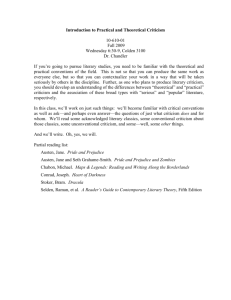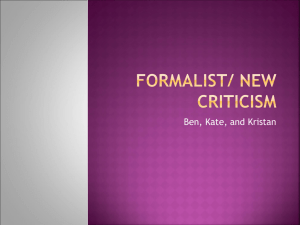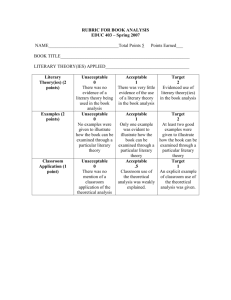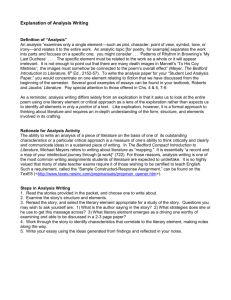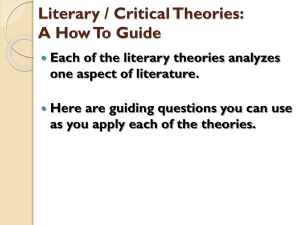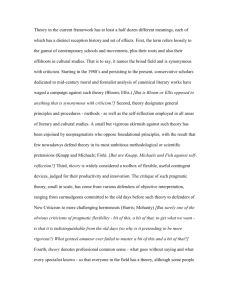Johns Hopkins Guide to Literary Theory and Criticism
advertisement
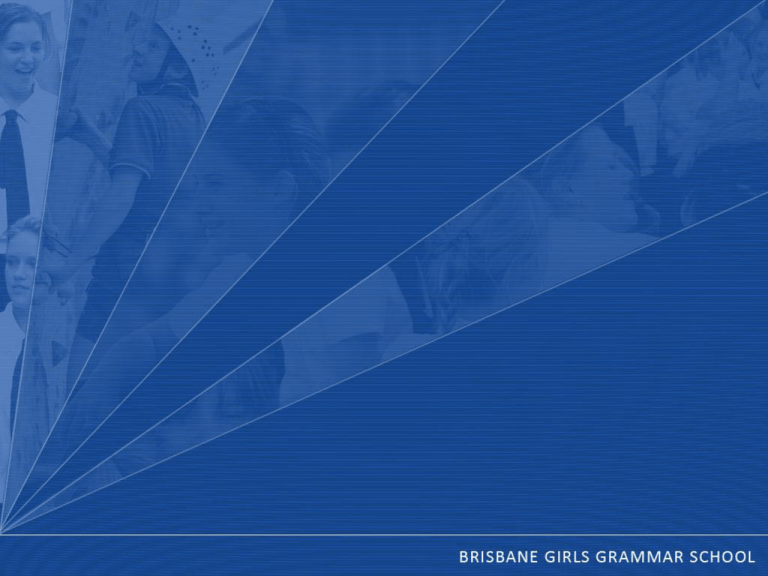
UQ Cyberschool – Literature online • Databases – some general observations – access – direct experience – professional development Johns Hopkins Guide to Literary Theory and Criticism • Key strengths – currency – refereed – ease of access Primary use – English Extension • University level application of literary theorists must be evident within each task. • The course is an intensive program of understandings and applications of literary theory: text-centred; reader-centred; world context-centred; etc. • Literary theories (e.g. Derrida) explicitly taught upfront by the teacher. • The Johns Hopkins Guide to Literary Theory and Criticism includes mainly secondary sources that offer a range of commentary, explanations and applications of a range of literary theories. Student activity • The students are allocated one theory or theorist. • They complete research from the database. • They present to the class and devise a learning resource. • The teacher then fills in gaps. Activity • Peer Teaching Roster 2010 – Guidelines: – Present for no longer than 10 minutes. – Provide a succinct summary + handout. – Be innovative in your presentation. – Use multimedia as much as practicable. – Test your colleagues’ comprehension in some way. Extension English tasks • Demands of Tasks 3(a) and (b): – independent choice of two texts [novel and film] – 3(a) is a multimedia seminar presentation – the student posits a theoretical approach – “justify your initial and provisional selection of texts, integrating device, and theoretical framework” – “display your awareness not only of the subtleties of the four reading approaches, but also of their interconnectedness” Task 3(b) • An essay for an academic journal • The student must demonstrate the central contention that – “whatever literature is, it is dependent on how, when, where, by whom and for what purposes it is read”. • Involves – – – – “the selective and synthesised application of literary theories “sophisticated engagement with … theoretical underpinnings” a bibliography of references the correct application of terminology and technical terms appropriate to the genres and the theory Secondary use – professional development • English teachers – Year 12 Hamlet – Year 10 Macbeth – Year 11 reader response theory • 30 hours! Another possibility • National curriculum – specified element of research. – Year 6: which is about to become the final year of primary school for us - “Determine the nature and extent of information needed and selectively source specific information using evaluative library and online research skills” – Year 7 (what is about to become our first year of secondary school) “Collect evidence from a variety of sources including libraries, websites, databases and search engines” – Or Year 10: “Undertake independent research using libraries, media sources and online resources”




